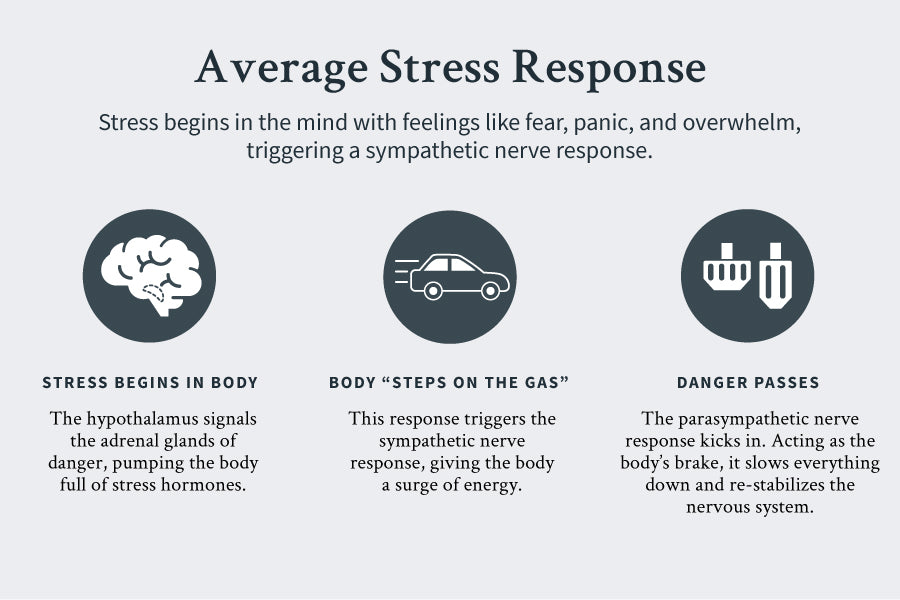Understand how stress begins in your mind and affects your body.
Stress begins in the mind with feelings like fear, panic, overwhelm, sadness, and depression.
The hypothalamus signals the adrenal glands of danger, and they begin pumping the body full of stress hormones. Harvard Health likens this response to the body “pressing on the gas pedal.” It triggers the sympathetic nerve response, giving the body a surge of energy.
“The heart beats faster than normal, pushing blood to the muscles, heart, and other vital organs. Pulse rate and blood pressure go up. The person undergoing these changes also starts to breathe more rapidly.”
These changes happen in a split second. In many cases, your body is experiencing the stress response before your visual cortex has fully processed the danger at hand. That’s why you can jump out of the path of an oncoming car so quickly before you have a chance to think about it.
Ideally, once the danger passes, the parasympathetic nerve response takes over. This is like the body’s “brake.” It slows everything down and restabilizes your system.
But for some people, taking their foot off the gas pedal and pumping the brake doesn’t happen easily. They continue to perceive danger. The hypothalamus triggers the release of different types of stress hormones (including cortisol) and keeps the body on high alert.

Harvard Health says:
“Chronic low-level stress [acts] much like a motor that is idling too high for too long. After a while, this has an effect on the body that contributes to health problems.”
What kinds of health problems?
The Mayo Clinic reports that chronic stress can cause a long list of symptoms, including:
- Anxiety
- Chest pain
- Decreased cognitive function
- Depression
- Diabetes
- Fatigue
- Headaches
- Heart disease
- High blood pressure
- Muscle tension
- Overeating and weight gain
- Sleep problems
- Stomach problems
While the fundamental elements of the body’s stress response are the same from person to person, it’s also true that everyone reacts differently to stress.
Situations that one person’s mind registers as stressful, another person’s mind might find completely unalarming—even safe. For some people, stress might cause severe stomach problems, while others might find themselves dealing with chronic headaches. It’s not always a predictable process.
What we know for sure is that stress has the potential to cause serious health issues. That’s why finding natural ways to manage it is a critical part of a healthy lifestyle.